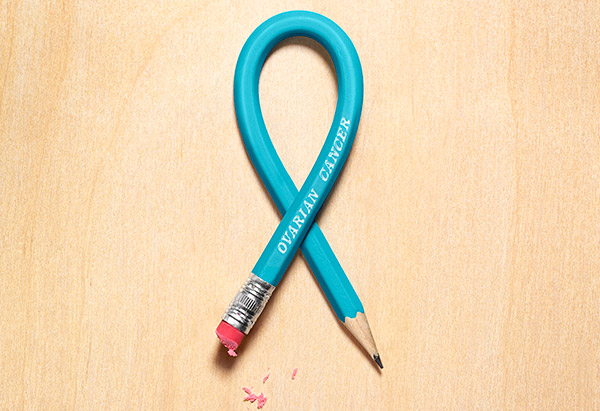4 Promising New Tests to Help Spot Cancer Earlier
These noninvasive screenings can speed detection—and save many more lives.

Photo: Adam Voorhes
"Better late than never" may work with eye exams or finally putting your gym membership to use, but when it comes to diagnosing disease, early is definitely best. In the case of cancer, though, early isn't always an option. Some types have no clear symptoms. Others require tests that are either unreliable or so off-putting that people are afraid to get them (colonoscopy, we're looking at you). But that could soon change: Scientists, doctors, and even one teenager are finding ways to spot cancer earlier, more accurately, and thankfully, without getting so intimate.
The fix: An easy, six-symptom checklist. A study from the Fred Hutchinson Cancer Research Center discovered that nearly 57 percent of women with early-stage ovarian cancer experience any of six warning signs: pelvic pain, abdominal pain, bloating, increased abdominal size, feeling full quickly, and difficulty eating. "Women 50 or over who complain of having these symptoms almost daily for more than a few weeks are at ten times higher risk for ovarian cancer," says study coauthor Robyn Andersen, PhD.
The fix: According to a 2012 study that examined 954 women with breast lumps or pain, ultrasounds may be better than mammograms at both detecting and ruling out cancer in women under 40, who are more likely to have dense breasts. Researchers found that breast ultrasounds revealed 95 percent of the cancers, compared with mammography's 60 percent.
The fix: Wisconsin-based diagnostics company Exact Sciences has developed a stool test shown to be 98 percent accurate for detecting cancer and up to 83 percent effective for spotting precancerous lesions. The test has the ability to uncover polyps years before they become cancerous. The company hopes the test, which is undergoing clinical trials, will earn FDA approval next year.
The fix: A dipstick test created by Maryland high schooler Jack Andraka. After months of working in a lab at Johns Hopkins, Andraka, 16, created a test that can measure levels of mesothelin with extreme sensitivity in just a single drop of blood. The test, which will begin the FDA-approval process later this year, would finally give anyone at risk for the disease a simple and effective screening option.
More About Women's Health
Ovarian Cancer
The problem: Since symptoms can be mistaken for other conditions, about 85 percent of ovarian cancers go undiagnosed until they've progressed to stage II or beyond.The fix: An easy, six-symptom checklist. A study from the Fred Hutchinson Cancer Research Center discovered that nearly 57 percent of women with early-stage ovarian cancer experience any of six warning signs: pelvic pain, abdominal pain, bloating, increased abdominal size, feeling full quickly, and difficulty eating. "Women 50 or over who complain of having these symptoms almost daily for more than a few weeks are at ten times higher risk for ovarian cancer," says study coauthor Robyn Andersen, PhD.
Breast Cancer
The problem: Mammograms can miss cancers in women with dense breast tissue, which can mask tumors.The fix: According to a 2012 study that examined 954 women with breast lumps or pain, ultrasounds may be better than mammograms at both detecting and ruling out cancer in women under 40, who are more likely to have dense breasts. Researchers found that breast ultrasounds revealed 95 percent of the cancers, compared with mammography's 60 percent.
Colon Cancer
The problem: About half of adults 50 and older who should get screenings, like colonoscopies, every ten years don't. This may be why only 39 percent of these cancers are found early.The fix: Wisconsin-based diagnostics company Exact Sciences has developed a stool test shown to be 98 percent accurate for detecting cancer and up to 83 percent effective for spotting precancerous lesions. The test has the ability to uncover polyps years before they become cancerous. The company hopes the test, which is undergoing clinical trials, will earn FDA approval next year.
Pancreatic Cancer
The problem: Though pancreatic cancer afflicts roughly 22,000 women every year, it's often diagnosed late because there are no obvious symptoms. When you have the disease, your body releases an overabundance of a protein called mesothelin, but scientists haven't been able to develop a way to detect it with a high level of accuracy.The fix: A dipstick test created by Maryland high schooler Jack Andraka. After months of working in a lab at Johns Hopkins, Andraka, 16, created a test that can measure levels of mesothelin with extreme sensitivity in just a single drop of blood. The test, which will begin the FDA-approval process later this year, would finally give anyone at risk for the disease a simple and effective screening option.
More About Women's Health



